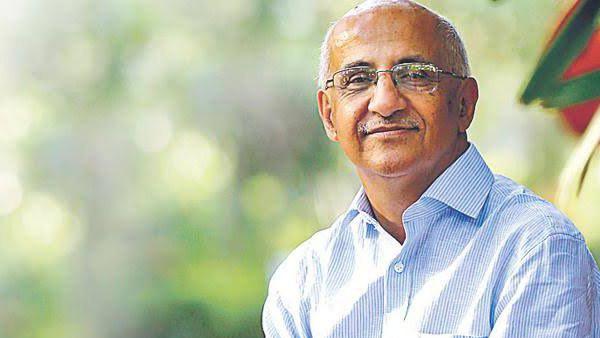Activists group condemn Police report for naming Harsh Mander as instigator of 'Delhi pogrom'

TCN News
More than 50 individuals have spoken out in strong condemnation of the inclusion of Harsh Mander’s name in the Final Report (Under Section 173 Cr. P.C.) filed by the Delhi police in response to the Delhi pogrom in February.
The solidarity statement resonates Harsh Mander’s credible position as a writer, social activist and civil rights defender. It goes on to acknowledge that Mander was formerly a civil servant who had resigned from his job in the wake of the Gujarat riots in 2002 to come forward as a human rights advocate. The signatories include prominent personalities from the fields of cinema, education, journalism, arts and commerce like Annie Raja (National Secretary, NFIW), Aparna Sen (actress), Gauhar Raza (retired scientist, filmmaker, poet), Jean Dreze (economist), Jignesh Mevani (youth leader), Nandita Das (actor), Ramachandra Guha (historian), Sohail Hashmi (historian), Yogendra Yadav (youth activist) among several others. Late actor Sushant Singh who died of suicide on June 15 was also one of the most imminent personalities to have signed the note.
In the Final Report of the Delhi pogrom, Police has said, it was “Mr. Harsh Mander who visited the site on 16/12/19 and instigated the protestors to not have faith in the Supreme Court and to fight their battle on road to get justice.” The Report also accused Mander of using “a façade of peace in a part of his speech.”
The open letter by these individuals responds to Delhi Police Final Report by referring to Mander’s original speech where he had said, “You must understand that it is their plan to instigate you towards violence so that when we commit 2% violence, they respond with 100%.” The letter also notes that Mander had given the example of Gandhian principles in these words, “We have learnt from Gandhi ji how to respond to violence and injustice. We will fight with non-violence. Anyone who instigates you toward violence or hatred, they are not your friends.”
While the Delhi Police has charged Mander of fueling protests through this speech, the open letter demonstrates that it was him who had filed a petition before the Supreme Court in the wake of Delhi pogrom to register FIR against political leaders whose inflammatory speeches had triggered the violence resulting in over 50 deaths. The letter alleged that “rather than giving a serious consideration to his petition the Solicitor General of India gave a twist to the episode by distorting his speech” and “selectively picking up parts of his Jamia Milia Islamia speech,” to argue that Mander’s words incited violence. The signatories have established that if one recounts Mander’s exact words, one can easily understand that the government was targeting him selectively instead of inquiring the case justly.
The statement has further accused Delhi Police of “distorting Mander’s speech and presenting him as the one instigating violence,” calling the act “extremely deplorable.” They added that it is a “clear attempt to target him and silence powerful and effective citizen’s voices against hate, divisiveness and for unity and compassion.” The signatories who are distinguished alumni and professionals from JNU, Delhi University, Free Speech Collective, Forum Against Corruption & Threats (FACT), Khudai Khidmatgar, IIM Ahmedabad, AIIMS and others, have also collectively condemned accusations against Harsh Mander, citing that he has “worked tirelessly for building bridges of love in the society,” other than “taking initiatives for underprivileged and religious minorities among others.”
“There cannot be anything more ridiculous than saying Harsh Mander uses façade of peace,” the letter echoes. The letter commends Mander for his recent initiatives like Aman Biradari and Karavan-E-Mohabbat, both organizations that have contributed immensely to the betterment of Indian society. It has also mentioned his current efforts to help the workers, who have had to tragically leave their urban jobs, in the wake of Corona lockdown.
Expressing support for Harsh Mander, the solidarity statement has said that the speech for which he has been charged is one that must “surely go down in history as the elaboration of Gandhian principles in contemporary times.” In conclusion, the signatories have demanded that “the motivated, compromised investigation and vilification of a person with a commitment to a just society must be stopped immediately.”
